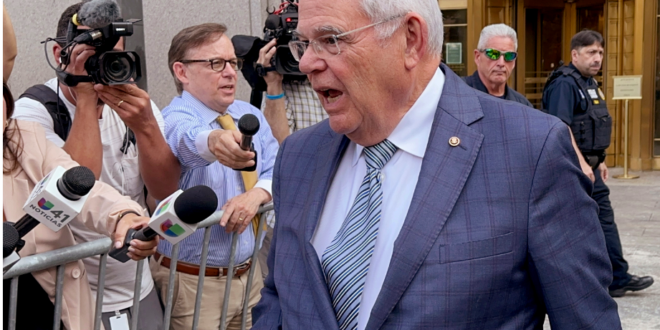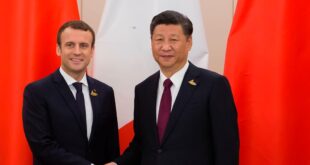Muhamad yehia & sahar ragab
NEW YORK (AP) — Prosecutors were presenting their bribery case against New Jersey Sen. Bob Menendez drip-by-drip on Tuesday, showing jurors a steady stream of documents, emails and phone records that they’ll explain more thoroughly later in the trial.
The evidence was being shown to Manhattan federal court jurors through the testimony of an FBI agent as the government slowly presents its case against the Democratic lawmaker.
Menendez, 70, is on trial with two New Jersey businessmen who prosecutors say paid him bribes, including gold bars and cash, over the last seven years so that he’d use his power as a senator to help them out.
All three have pleaded not guilty. The trial, in its third week, resumed for the first time in a week.
Some evidence being presented without commentary probably seemed familiar to jurors based on earlier testimony and opening statements.
For instance, prosecutors had asserted that the senator aided the Egyptian government by giving it sensitive information, including the number of Americans and Egyptians who worked at the U.S. embassy.
Jurors were shown a progression of text messages, emails and phone records that showed that Menendez requested that information in early May 2018 and then passed it along to his then-girlfriend, Nadine Arslanian.
She relayed that information to Wael Hana, a businessman who prosecutors said parlayed his connections to Egyptian officials and friendship with Arslanian and the senator into a deal that enabled his company to monopolize the certification of all meat exported from the U.S. to Egypt as adhering to Islamic dietary requirements.
Hana, one of two businessmen on trial with Menendez, then relayed the facts to an Egyptian official, according to the evidence shown to jurors.
Earlier in the trial, a U.S. diplomat formerly based in Egypt testified that the cost of certifying the meat rose dramatically after Hana’s company gained control of a certification process that had previously been handled by four companies.
 موقع وجه أفريقيا موقع وجه أفريقيا هو موقع مهتم بمتابعة التطورات في القارة الأفريقية
موقع وجه أفريقيا موقع وجه أفريقيا هو موقع مهتم بمتابعة التطورات في القارة الأفريقية



